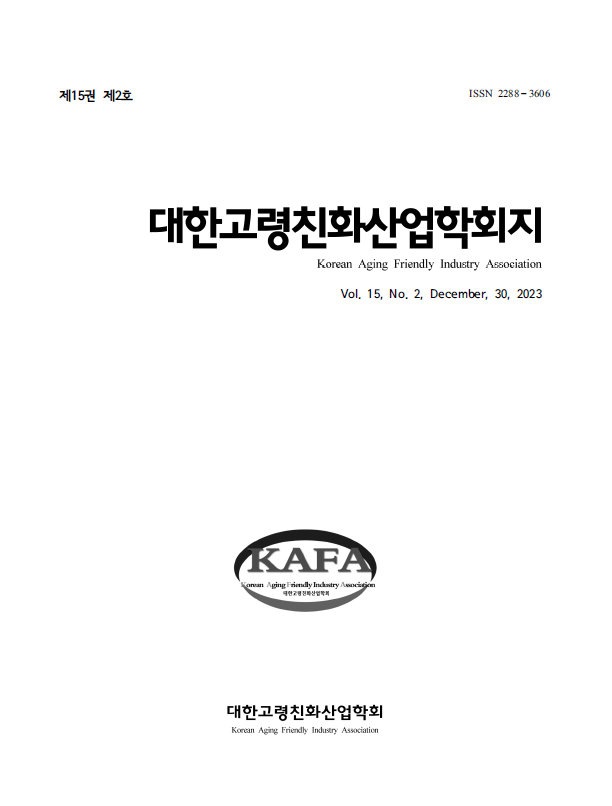코로나 팬데믹 이후 치매 노인환자 비공식 가족돌봄의 실태와 영향 요인
After the COVID-19 Pandemic: The Reality and Influencing Factors of Caregiving for Older Patients with Dementia in Community
- 대한고령친화산업학회
- 대한고령친화산업학회지
- 제15권 제2호
-
2023.1261 - 74 (14 pages)
- 150

연구목적 본 연구는 팬데믹 이후 지역사회 치매노인환자 돌봄의 실태와 돌봄의 변화를 알아보고, 비공식 가족돌봄에 영향을 미치는 대한 요인을 알아보고자 하였다. 연구방법 한국고령화패널(KLoSA) 7차와 8차 데이터에서 치매로 진단 받거나 인지능력(K-MMSE)에서 치매로 의심되는 1,305명을 연구 대상자로 선정하였다. 총돌봄시간과 관련 요인을 총돌봄 양에 미치는 요인을 알아보기 위해 다중 선형회귀분석을 실시하였다. 연구결과 팬데믹 이후 가족구성원 수가 유의하게 증가하였다. 단독 독거노인과 단독 노인부부의 비율 감소하였고, 노인 부부와 자녀 동거가구와 노인 부부와 다른 가족 동거 가구 비율이 유의하게 증가하였다. 반면, 총돌봄시간은 팬데믹 이전 평균 6.17시간에서 5.08시간으로 감소를 보였다. 치매노인의 총돌봄 시간은 일상생활수행능력의 의존도, 우울증, 가구의 총소득과 양적인 유의한 상관관계를 나타났다. 결론 지역사회 치매 노인환자의 돌봄 요구에 영향을 미치는 요인과 돌봄자 및 가구 특성에 맞는 다양한 맞춤형 프로그램을 강화하는게 필요하다고 보여진다.
Objective : This study aimed to examine the state and changes in caregiving for the older patients with dementia in the community after the pandemic and to identify factors affecting informal family caregiving. Methods : Using Korean Longitudinal Study of Aging (KLoSA) data from its 7th and 8th waves, 1,305 diagnosed or suspected dementia cases were examined. Multiple linear regression analysis explored factors influencing total care time. Results : Post-pandemic, family size significantly increased, with a decline in older people living alone or as couples and a notable rise in older couples living with children or other family. Despite this, total care time decreased from 6.17 to 5.08 hours. Care time for the older patients with dementia correlated significantly with daily living dependence, depression, and household income. Conclusion : The study emphasizes tailored programs, aligning with caregiver and household traits, to address the needs of local community dementia patients effectively.
Ⅰ. 서 론
Ⅱ. 연구방법
Ⅲ. 연구결과
Ⅳ. 고 찰
Ⅴ. 결 론
(0)
(0)